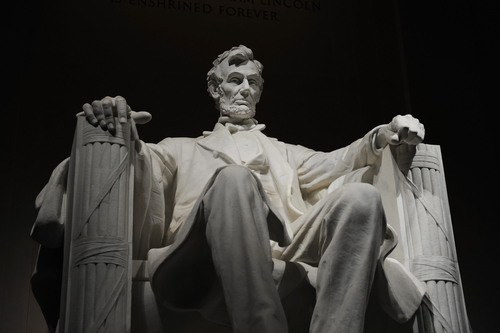So far this year, a rightward-leaning Supreme Court has issued two major rulings granting sweeping new privileges to religious belief. Atheists and secularists in America are angry and frustrated, and it’s natural to wonder when we’ll have a government that heeds our wishes. Is there any prospect of an atheist president any time soon, or a nonbeliever in some other high political office?
My message, to atheists and friends of secularism, is that there’s reason to hope. It won’t be next election cycle or even next decade, but things may change faster than we think.
The most underappreciated fact about the future of American politics is that the so-called Millennial generation, born between 1982 and 2000, is both the biggest (yes, bigger than the Baby Boomers) and least religious generation in American history. It seems likely that they’re on the leading edge of the same secularizing shift that’s already happened in Europe and other First World countries, as religion ceases to be an overwhelmingly important part of daily life. Higher levels of education are playing a part in this, but it’s likely that, in America at least, it’s also a reaction against the way politically aggressive fundamentalism has made religion synonymous with a particular harsh and intolerant political outlook.
As the younger, more secular demographics grow into adulthood and replace more religiously homogeneous voters, blatant appeals to religion will begin failing as a campaign tactic. We’re already seeing the first encouraging signs of this – the 2006 U.S. midterm elections were swung by independent voters, of which the non-religious are a major bloc; and atheist-bashing political ads have failed to turn the tide in elections, to say nothing of the non-religious’ overwhelming support for Barack Obama in two elections – but it hasn’t happened often enough or obviously enough to really catch politicians’ attention.
But when it does sink in, the American political landscape will change dramatically. The importance of secularism as a constitutional principle will be recognized again; associating with pushy, domineering fundamentalists will become poison for national campaigns; loud and showy god-talk will decline in importance; candidates may even explicitly reach out to us. It’s only then that an openly atheist candidate would stand a chance. It may take a long time for the dam to break, but when it does happen, the change could take place quite rapidly, just as same-sex marriage went from unthinkable to unstoppable within a short few years.
While atheists, lacking a central authority or sacred text, are a diverse and contentious bunch and that will likely never change, I think there are some basic principles we can agree on. I’ve listed some of them in the past: LGBT rights, separation of church and state, public support for science and education, and defense of reproductive choice, to name a few. And when there is an actual atheist candidate, the excitement of that milestone will no doubt lead atheists to line up behind her.
That said, I think the real achievement won’t be the first atheist presidential candidate, but the second. As long as atheists running for office are seen as unusual or exceptional, there will remain that otherizing perception that there’s something different about us, that being a nonbeliever is a category unlike the rest of humanity. When an atheist candidate isn’t an exceptional event, but something that doesn’t even occasion comment or raised eyebrows, then we’ll know we’ve taken our rightful place in the body politic.
Editors’ Note: This article is part of the Public Square 2014 Summer Series: Conversations on Religious Trends. Read other perspectives from the Atheist community here.
